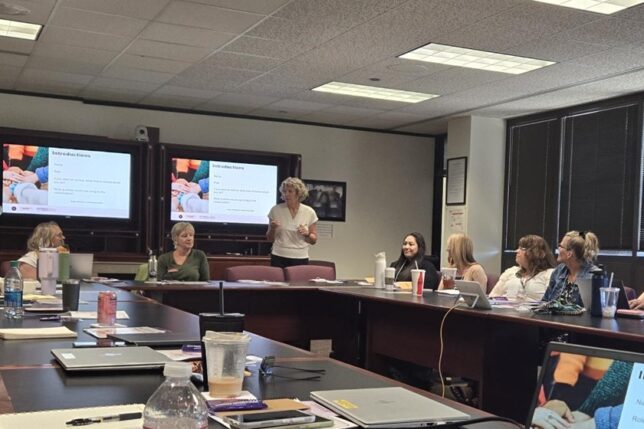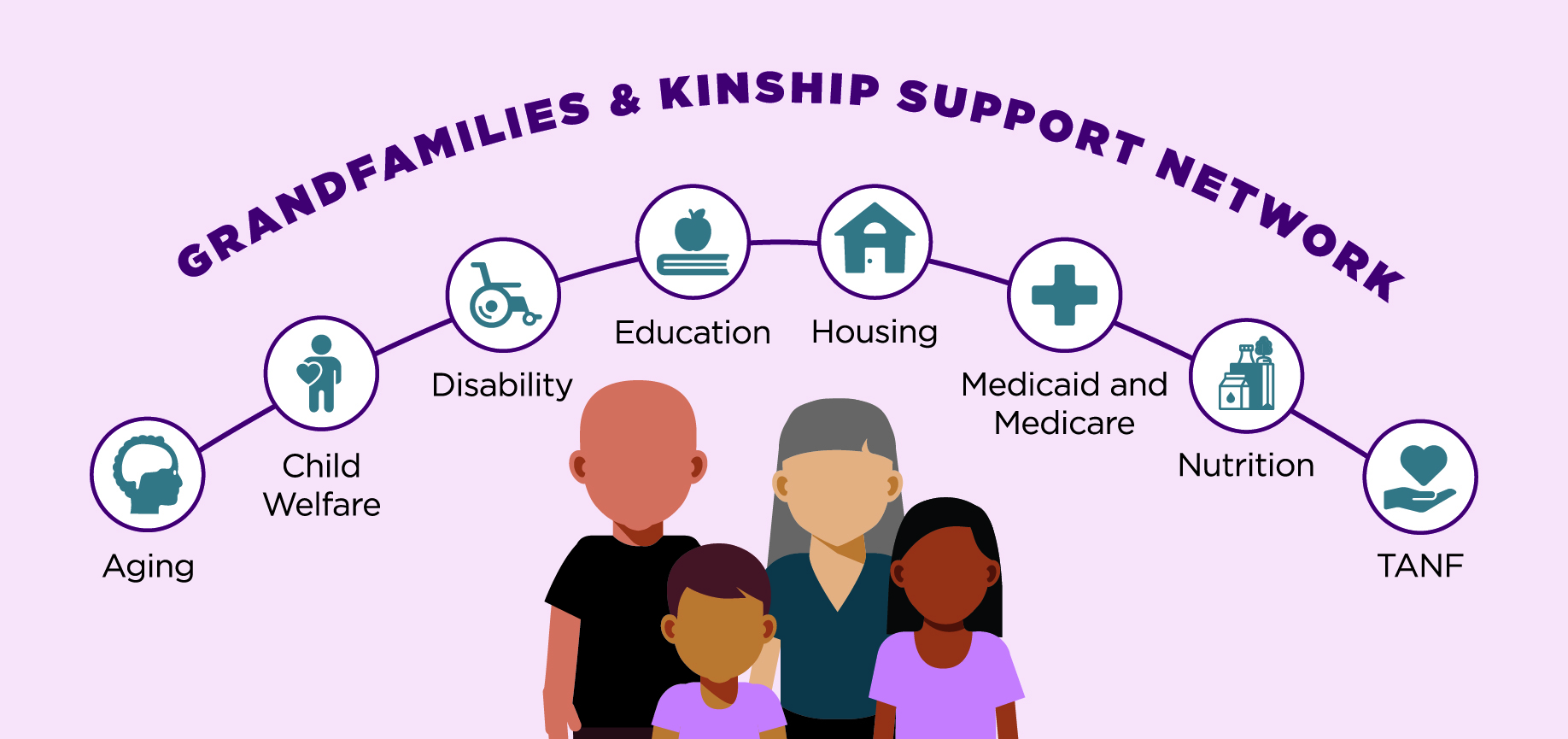We Serve Government Agencies and Nonprofits

Our Work
The Grandfamilies & Kinship Support Network: A National Technical Assistance Center (Network) helps state, Tribal, and territorial government agencies, nonprofit organizations, and kinship navigator programs holistically work across systemic and geographic boundaries to better support grandparents, other relatives, and close family friends and the children they raise.
Our aim is to help agencies and kinship programs learn from other innovations around the country and work collaboratively to better support these families now and into the future. While we do not help the families with their individual cases, kin/grandfamily caregivers are at the core of all we do, guiding and informing us.

As part of our effort to encourage all government systems and nonprofits that interact with kinship/grandfamilies to coordinate with each other to better serve the families, we have been creating system-specific outreach brochures. Each brochure briefly introduces kinship/grandfamilies, explains how the families interact with the named system, and describes why cross-system collaboration would be beneficial. The idea is to raise awareness and educate individuals who are new to this topic. You can also share these pieces with colleagues and potential partners in the named system to help make the case for targeted support and collaboration for kinship/grandfamilies. Links will be added as we develop more outreach brochures. If you would like printed copies of the brochures or access to the professional printing files, please contact us at info@gksnetwork.org.
- Aging
- Child Welfare
- Disability
- Education
- Housing
- Medicaid and Medicare
- Nutrition
- Temporary Assistance for Needy Families (TANF)
We also have a brochure for Family Resource Centers.
History and Purpose of our Approach
Generations United has been working to support grandfamilies and kinship families for over 25 years. Going into states and counties around the country, we have routinely seen agencies operating in silos that limit their ability to support the families. For example, child welfare often does not know that there are programs within aging that can help the families, and vice versa. And aging and child welfare are just two systems. There are at least six others – disability, education, housing, Medicaid/Medicare, nutrition, and Temporary Assistance for Needy Families (TANF) – that are important to the families. These systems may not see the caregivers as part of “grandfamilies” or “kinship families” and, consequently, they may not know to connect the families to other supports, like a Kinship Navigator Program.
Congress and the Administration for Community Living (ACL) at the U.S. Department of Health & Human Services saw similar challenges and responded accordingly. In 2021, Congress appropriated $10 million over five years for the first-ever national technical assistance center on grandfamilies and kinship families. After a competitive process through ACL, Generations United was awarded the cooperative agreement to help systems better serve the families. Learn more about what we do at the Network.
If you work for a relevant government agency in a state, Tribe, or territory; are a kinship navigator; or support the families through a nonprofit organization, please join us by signing up to access all our offerings, free of charge.
The Grandfamilies & Kinship Support Network is supported by the Administration for Community Living (ACL), U.S. Department of Health and Human Services (HHS) as part of a financial assistance award totaling $9,950,000 with 95 percentage funded by ACL/HHS and $523,684 and 5 percentage funded by non-government sources. The contents are those of the authors and do not necessarily represent the official views of, nor an endorsement, by ACL/HHS, or the U.S. Government.